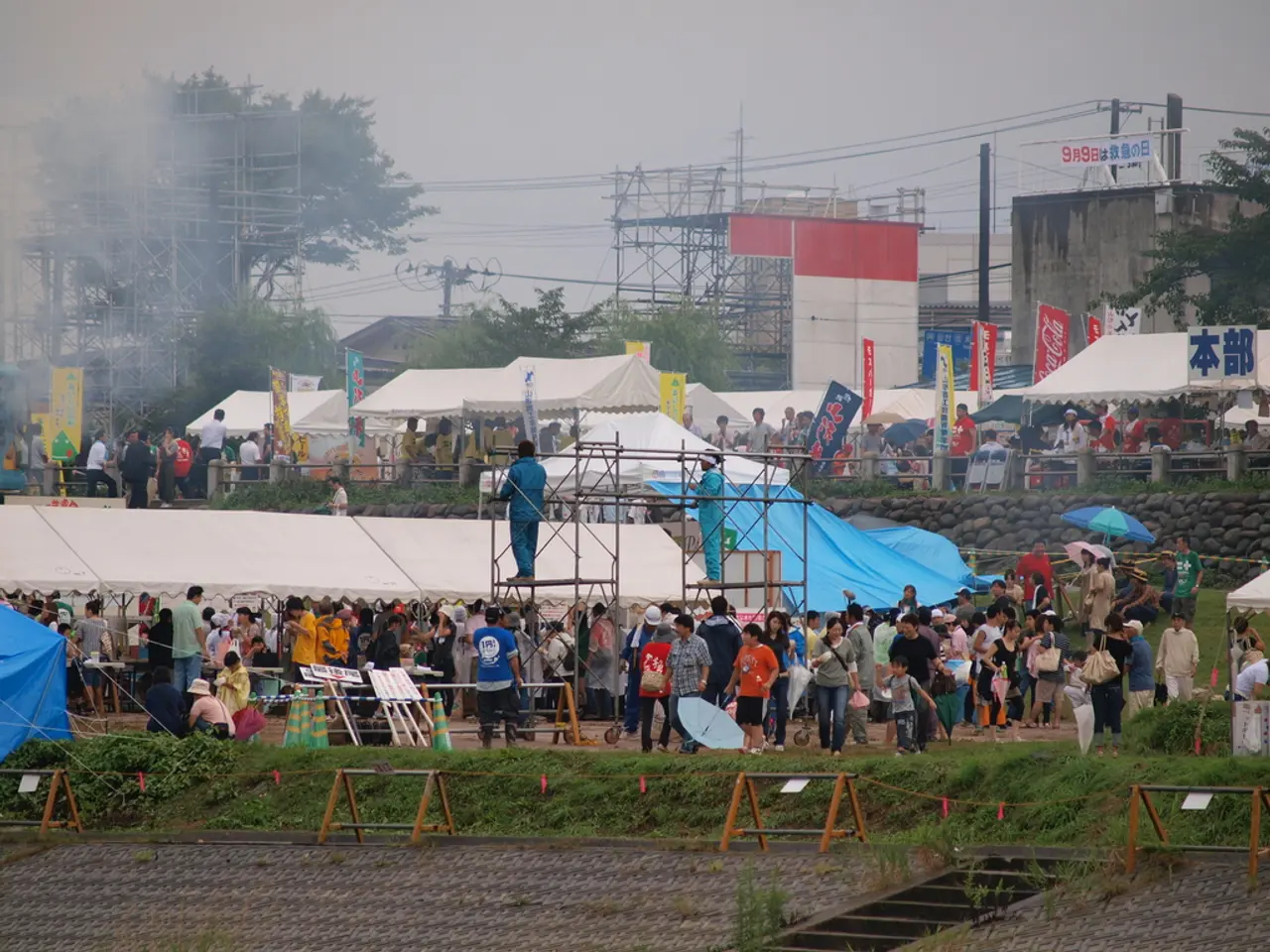Increasing restrictions on RV and tent occupancy
Wild Camping in Germany: A Guide to Legal and Sustainable Outdoor Adventures
Wild camping, or camping outside of designated campsites, is a popular activity for many nature lovers. However, in Germany, wild camping is largely prohibited on private and public land without the landowner's permission. But fear not, there are legal options to camp outdoors using official trekking sites or designated primitive camping areas.
Official Trekking and Wilderness Camping Sites
Scattered across Germany, these sites offer a one-night stay, often with prior booking or registration required. These sites may have minimal facilities like fire pits or water taps, but they require adherence to specific rules to maintain availability.
Respecting Local Regulations and Private Property
It's crucial to always check if booking or prior registration is necessary, as many sites limit camping to a single night and have strict rules. Respect any local regulations or private property boundaries—without landowner permission, setting up tents or overnight stays on private land is illegal.
Equipping Yourself for Minimalist, Off-Grid Camping
To legally wild camp in Germany with proper equipment, you should carry portable camping gear suitable for minimalist, off-grid camping. This includes a compact tent, portable stove, water filter (for potable water in remote areas), and solar panels or batteries for power.
Avoiding Fines
Anyone who wild camps risks a fine ranging from 10 to 5,000 euros, depending on the federal state. The fines for wild camping in the federal states of NRW, Brandenburg, and Mecklenburg-Vorpommern can be up to 300, 500, and 5,000 euros for tents, respectively, and depend on the duration. In the case of Brandenburg and Mecklenburg-Vorpommern, the fines for cars can also reach up to 500 and 1,000 euros, respectively.
Alternatives to Wild Camping
For those seeking a stress-free adventure with the local authorities, platforms like Alpaca Camping, Campspace, Landvergnügen, and Park4Night provide alternatives. These platforms offer unique camping spots on private landowners' properties, often with the added benefit of local experiences.
Sustainable Camping Solutions
Sustainable camping solutions from BOXIO, such as the separate toilet, mobile sink, and gas stove, can help campers stay flexible, hygienic, and nature-friendly. The BOXIO Cook is ideal for cooking legally on a private place or campsite without a large camping kitchen. The BOXIO Separate Toilet is a solution for leaving no traces when wild camping.
Bivouacking
Bivouacking, or overnighting under the open sky without a tent, is partially allowed but only in emergency situations and never in nature reserves.
No Allemansrätten in Germany
Unlike Sweden, there is no broad right akin to Allemansrätten in Germany allowing free camping in natural areas without restrictions or permissions. Thus, preparation and use of official or permitted wilderness camping options are essential for legal wild camping in Germany.
In summary, true wild camping anywhere in Germany without permission is mostly illegal, but using designated trekking and wilderness sites is the legal way to camp outside of traditional campgrounds while properly equipped. Always confirm site rules, book if required, and respect nature and property.
- To fully enjoy outdoor-living while in Germany, consider using the official trekking and wilderness camping sites that offer a one-night stay, often with prior booking or registration required.
- For nature enthusiasts who prefer a more sustainable and minimalist camping style, portable camping gear suitable for off-grid camping can help campers adhere to local regulations and avoid fines while enjoying other lifestyle options like bivouacking in emergency situations.




